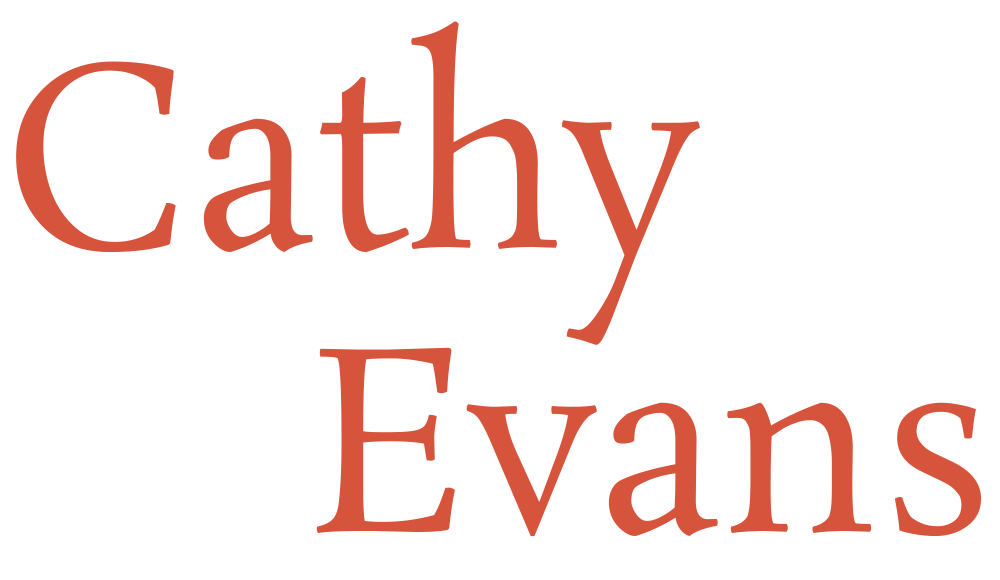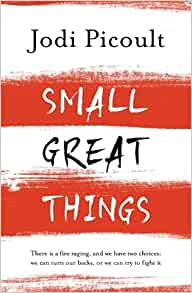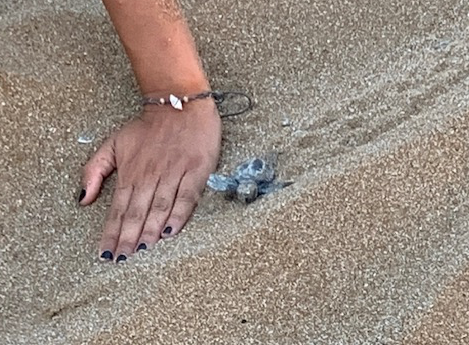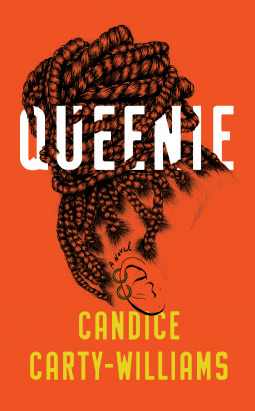The worst you can say about Jodi Picoult is that she lays it on with a trowel, and she likes to tie her loose ends so tightly that they squeak, echoing beyond the realms of believability. Once you accept this, you can allow yourself to get utterly absorbed in her novels, which shamelessly pull on your emotions (sometimes I actually heard those violins playing) as she is so adept at exploring multiple sides of a meaty argument, where nothing is straightforward and nothing can be taken at face value, and she forces you to confront the state of your own mind.
Once you start her books, they are very hard to disengage from, and this one is no exception.
Ruth is a nurse with over 20 years of experience, who performs a routine examination on a newborn. The child’s father tells her in no uncertain terms that he doesn’t want her touching his child. He is a white supremacist with a Confederate flag and swastika tattoos, and while she may be an exemplary nurse, she is guilty of the unforgiveable crime of being black. Rather unbelievably, the hospital honours his wishes (The novel is set during Obama’s administration; I was thinking: would anyone with half a brain even DO that?) and a post-it note is put on the baby’s file that no African American member of staff should be involved in the infant’s care.
After Ruth has worked a double shift, she is forced to watch over the baby after he has been circumcised, as the only other available (white) nurse is called in to an emergency, and there is literally no one else to do it. As you may expect, things rapidly go Pete Tong from there.
The story is told in first person by Ruth, and by two other characters: her public defence attorney, Kennedy McQuarrie and Turk Bauer, the terrifying father of the poor baby. Ruth is the widow of a soldier who died in Afghanistan; she’s the mother of an honour student son, and has spent her whole life studying and working hard and doing the right thing, trying her damndest to fit in with her white peers at school and at work, only to find that they are quite happy to throw her under a bus when it suits them; that loyalty and friendship can only be expected to be carried so far.
Kennedy is a public defence attorney, a privileged white girl married to an ophthalmologic surgeon who has told her: ‘I’ll make the money so you can make the difference.’ When she declares to Ruth ‘I literally don’t see colour’, you know she’s in for an education.
Then there is the horrifying Turk, the baby’s father, who is consumed with rage and hatred against the world, and suffers such heartbreak after his son’s death, that he is determined to make someone pay. That someone is Ruth.
Picoult is adept at weaving didacticism in the narrative so that you don’t notice (or at least you don’t mind) that you’re being educated in neonatal health procedures, legal and court processes, the dark art of picking jury members, and the inner workings of white supremacist cells and their recruitment activities.
For the most part, her research is presented lightly, and whenever it is a bit clunky, it’s at least interesting. White privilege is clearly contrasted with the experience of being black; white people don’t have to think about what it means to be white. Black people seldom have the luxury of thinking of anything else: not only having to face the Turk Bauers of this world; but also having to constantly second guess those around them, to be trailed by security while out shopping, to have all their human frailties ascribed to the colour of their skin, to be fearful of law enforcement even when they’re doing nothing wrong, to have their every achievement ascribed to tokenism and to sometimes be faced with the devastating realisation that the acceptance you thought you had from longstanding friends and colleagues is just a veneer, that is all too easily stripped away.
Jodi Picoult has made a noble attempt to highlight this to her readership. She writes an interesting essay which appears at the back of the book, remarking that ‘I wasn’t writing it to tell people of color what their own lives are like. I was writing to my own community – white people – who can very easily point to a neo-Nazi skinhead and say he’s a racist… but who can’t recognise racism in themselves.’
The title comes from Martin Luther King, who said ‘If I cannot do great things, I can do small things in a great way.’



